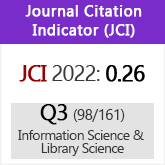Caracterización de los clásicos del emprendimiento (1968-2016). Un análisis basado en la Web of Science
DOI:
https://doi.org/10.3989/redc.2018.2.1488Palabras clave:
Emprendimiento, clásico, H-Classic, H-IndexResumen
Este trabajo tiene como objetivo profundizar en el análisis del campo del emprendimiento mediante la búsqueda bibliográfica de los trabajos que se configuran como “clásicos del emprendimiento” y su caracterización, así como la del “conocimiento base” (trabajos citados) en que se apoyan los mismos. Se aplica la metodología H-Classics para seleccionar estos trabajos clásicos y se realiza un análisis en profundidad de documentos, autores citantes y citados y revistas. Los resultados alcanzados llevan a aislar las fuentes que permitirían determinar qué obras podrían constituir la disciplina del emprendimiento y lo que es más importante, cuáles cuentan con mayor “probabilidad” de mostrar aquellos paradigmas necesarios para conformarla.
Descargas
Citas
Aldrich, H. E. (2012). The emergence of entrepreneurship as an academic field: A personal essay on institutional entrepreneurship. Research Policy, 41 (7), 1240-1248. https://doi.org/10.1016/j.respol.2012.03.013
Aldrich, H. E.; Waldinger, R. (1990). Ethnicity and entrepreneurship. Annual review of sociology, 16 (1), 111-135. https://doi.org/10.1146/annurev.so.16.080190.000551
Aldrich, H. E.; Fiol, C. M. (1994). Fools rush in? The institutional context of industry creation. Academy of management review, 19 (4), 645-670. https://doi.org/10.5465/amr.1994.9412190214
Aldrich, H. E.; Cliff, J. E. (2003). The pervasive effects of fa-mily on entrepreneurship: Toward a family embeddedness perspective. Journal of business venturing, 18 (5), 573- 596. https://doi.org/10.1016/S0883-9026(03)00011-9
Alvarez, S. A.; Busenitz, L. W. (2001). The entrepreneurship of resource-based theory. Journal of Management, 27 (6), 755-775. https://doi.org/10.1177/014920630102700609
Amit, R.; Glosten, L.; Muller, E. (1993). Challenges to theory development in entrepreneurship research. Journal of Management Studies, 30 (5), 815-834. https://doi.org/10.1111/j.1467-6486.1993.tb00327.x
Amit, R.; Zott, C. (2001). Value creation in e-business. Strategic Management Journal, 22 (6-7), 493-520. https://doi.org/10.1002/smj.187
Ardanuy, J. (2012). Breve introducción a la bibliometría. Departament de Biblioteconomia i Documentació, Universitat de Barcelona.
Baumol, W. J. (1968). Entrepreneurship in economic theory. The American economic review, 58(2), 64-71.
Birch, D. G. (1979). The job generation process. Cambridge, Mass.: MIT Program on Neighborhood and Regional Change.
Boulard, M. M. (2011). La dirección de empresas ante los retos del siglo XXI: Homenaje al profesor Juan José Renau Piqueras. Universitat de València. PMCid:PMC3069163
Bruyat, C.; Julien, P. A. (2001). Defining the field of research in entrepreneurship. Journal of Business Venturing, 16 (2), 165-180. https://doi.org/10.1016/S0883-9026(99)00043-9
Bygrave, W. D.; Hofer, C. W. (1991). Theorizing about entrepreneurship. Entrepreneurship Theory and Practice, 16 (2), 13-22. https://doi.org/10.1177/104225879201600203
Carlsson, B.; Braunerhjelm, P.; McKelvey, M.; Olofsson, C.; Persson, L.; Ylinenpää, H. (2013). The evolving domain of entrepreneurship research. Small Business Economics, 41 (4), 913-930. https://doi.org/10.1007/s11187-013-9503-y
Carrasco, I.; Casta-o, M. S. (2008). El emprendedor schumpeteriano y el contexto social. Información comercial espa-ola, (845), 121.
Cobo, M. J.; López-Herrera, A. G.; Herrera-Viedma, E.; Herrera, F. (2012). SciMAT: A new science mapping analysis software tool. Journal of the American Society for Information Science and Technology, 63 (8), 1609- 1630. https://doi.org/10.1002/asi.22688
Cornelius, B.; Landström, H.; Persson, O. (2006). Entrepreneurial studies: The dynamic research front of a developing social science. Entrepreneurship Theory and Practice, 30 (3), 375-398. https://doi.org/10.1111/j.1540-6520.2006.00125.x
Croci, C. L. (2016). Is Entrepreneurship a Discipline? Honors Theses and Capstones, 296. https://scholars.unh.edu/ honors/296
Cuervo, Á.; Ribeiro, D.; Roig, S. (2007). Entrepreneurship: Conceptos, teoría y perspectiva. Introducción. In: Entrepreneurship: Conceptos, teoría y perspectiva, pp. 9-25. https://doi.org/10.1007/978-3-540-48543-8
Cunningham, J. B.; Lischeron, J. (1991). Defining entrepreneurship. Journal of Small Business Management, 29 (1), 45-61.
De Solla Price, D. J. (1967). Communication in science: the ends—philosophy and forecast. In Ciba Foundation Symposium-Communication in Science: Documentation and Automation, pp. 199-213. John Wiley & Sons, Ltd. https://doi.org/10.1002/9780470719572.ch15
De Solla Price, D. J. (1963). Little science, big science. London/New York: Columbia University Press. PMid:17788361
Dess, G. G.; Lumpkin, G. T.; Covin, J. G. (1997). Entrepreneurial strategy making and firm performance: Tests of contingency and configurational models. Strategic management journal, 18 (9), 677-695. https://doi.org/10.1002/(SICI)1097-0266(199710)18:9<677::AID-SMJ905>3.0.CO;2-Q
Díaz, C. (2002). La creación de empresas. Revisión histórica de teorías y escuelas. Trujillo: Ediciones La Coria.
Dobrov, G. M. (1989). Nauka o nauke: na?ala naukovedenija. Naukova dumka.
Dubini, P.; Aldrich, H.E. (1991). Personal and extended networks are central to the entrepreneurial process. Journal of Business Venturing, 6 (5), 305-313. https://doi.org/10.1016/0883-9026(91)90021-5
Garfield, E. (1972). Citation analysis as a tool in journal evaluation. Science, 178 (4060), 471-479. https://doi.org/10.1126/science.178.4060.471 PMid:5079701
Garfield, E. (1977). Introducing citation classics: the human side of scientific reports. Current Contents, 3, 5-7.
Garfield, E.; Merton, R. K. (1979). Citation indexing: Its theory and application in science, technology, and humanities (vol. 8). New York: Wiley.
Gartner, W. B. (1985). A conceptual framework for describing the phenomenon of new venture creation. Academy of Management Review, 10 (4), 696-706. https://doi.org/10.5465/amr.1985.4279094
Genescà, E.; Aponte, M. (2003). Creación de empresas (vol. 33). Univ. Autònoma de Barcelona.
Greenwood, R.; Raynard, M.; Kodeih, F.; Micelotta, E. R.; Lounsbury, M. (2011). Institutional complexity and organizational responses. Academy of Management annals, 5 (1), 317-371. https://doi.org/10.5465/19416520.2011.590299
Hébert, R. F.; Link, A. N. (2009). A history of entrepreneurship. Abingdon: Routledge.
Heradio, R.; Perez-Morago, H.; Fernandez-Amoros, D.; Cabrerizo, F. J.; Herrera-Viedma, E. (2016). A bibliometric analysis of 20 years of research on software product lines. Information and Software Technology, 72, 1-15. https://doi.org/10.1016/j.infsof.2015.11.004
Herrera-Viedma, E.; Martinez, M. A.; Herrera, M. (2016). Bibliometric Tools for Discovering Information in Database. International Conference on Industrial, Engineering and Other Applications of Applied Intelligent Systems, pp. 193-203. Springer International Publishing. https://doi.org/10.1007/978-3-319-42007-3_17
Kuhn, T. S. (1962). The structure of Scientific Revolutions. Chicago: Chicago University Press.
Kuhn, T. S. (1970). Logic of discovery or psychology of research. In: Criticism and the Growth of Knowledge, pp. 1-23. https://doi.org/10.1017/CBO9781139171434.003
La Flor-Martínez, D.; Galindo-Moreno, P.; Sánchez-Fernández, E.; Piattelli, A.; Cobo, M. J.; Herrera-Viedma, E. (2016). H-classic: a new method to identify classic articles in Implant Dentistry, Periodontics, and Oral Surgery. Clinical Oral Implants Research, 27 (10), 1317-1330. https://doi.org/10.1111/clr.12749 PMid:26749065
Landström, H.; Benner, M. (2010). Entrepreneurship research: a history of scholarly migration. In: Historical foundations of Entrepreneurship Research, pp. 15-45. https://doi.org/10.4337/9781849806947.00008
Landström, H.; Harirchi, G.; Åström, F. (2012). Entrepreneurship: Exploring the knowledge base. Research Policy, 41 (7), 1154-1181. https://doi.org/10.1016/j.respol.2012.03.009
Li-án, F.; Fayolle, A. (2015). A systematic literature review on entrepreneurial intentions: citation, thematic analyses, and research agenda. International Entrepreneurship and Management Journal, 11 (4), 907- 933. https://doi.org/10.1007/s11365-015-0356-5
López Pi-ero, J.M. (1972). El análisis estadístico y sociométrico de Ia literatura científica. Valencia: Facultad de Medicina.
Low, M. B.; MacMillan, I. C. (1988). Entrepreneurship: Past research and future challenges. Journal of Management, 14 (2), 139-161. https://doi.org/10.1177/014920638801400202
Lumpkin, G. T.; Dess, G. G. (1996). Clarifying the entrepreneurial orientation construct and linking it to performance. Academy of Management Review, 21 (1), 135-172. https://doi.org/10.5465/amr.1996.9602161568
Lumpkin, G. T.; Dess, G. G. (2001). Linking two dimensions of entrepreneurial orientation to firm performance: The moderating role of environment and industry life cycle. Journal of business venturing, 16 (5), 429-451. https://doi.org/10.1016/S0883-9026(00)00048-3
Luor, T.; Lu, H. P.; Yu, H.; Chang, K. (2014). Trends in and contributions to entrepreneurship research: a broad review of literature from 1996 to June 2012. Scientometrics, 99 (2), 353-369. https://doi.org/10.1007/s11192-013-1203-5 PMid:24719495 PMCid:PMC3976513
Martínez, M. A.; Herrera, M.; López-Gijón, J.; Herrera- Viedma, E. (2014). H-Classics: Characterizing the concept of citation classics through H-index. Scientometrics, 98 (3), 1971-1983. https://doi.org/10.1007/s11192-013-1155-9
Marvel, M. R.; Lumpkin, G. T. (2007). Technology entrepreneurs' human capital and its effects on innovation radicalness. Entrepreneurship Theory and Practice, 31 (6), 807-828. https://doi.org/10.1111/j.1540-6520.2007.00209.x
Meho, L. I.; Yang, K. (2007). Impact of data sources on citation counts and rankings of LIS faculty: Web of Science versus Scopus and Google Scholar. Journal of the American Society for Information Science and Technology, 58 (13), 2105-2125. https://doi.org/10.1002/asi.20677
Merton, R. K. (1977). La sociología de la ciencia, 2 vols. Madrid: Alianza.
Meyer, M.; Libaers, D.; Thijs, B.; Grant, K.; Glänzel, W.; Debackere, K. (2014). Origin and emergence of entrepreneurship as a research field. Scientometrics, 98 (1), 473-485. https://doi.org/10.1007/s11192-013-1021-9
Miller, D. (1983). The correlates of entrepreneurship in three types of firms. Management Science, 29 (7), 770-791. https://doi.org/10.1287/mnsc.29.7.770
Minniti, M. (2013). The Dynamics of Entrepreneurship: Evidence from Global Entrepreneurship Monitor Data. Oxford: Oxford University Press.
Moral-Mu-oz, J. A.; Cobo, M. J.; Chiclana, F.; Collop, A.; Herrera-Viedma, E. (2016). Analyzing highly cited papers in Intelligent Transportation Systems. IEEE Transactions on Intelligent Transportation Systems, 17 (4), 993-1001. https://doi.org/10.1109/TITS.2015.2494533
Morrell, J. B. (1990). Professionalisation. In: Olby R.C. et al. (eds.). Companion to the History of Modern Science, pp 980–989. London, New York: Routledge.
Norris, M.; Oppenheim, C. (2007). Comparing alternatives to the Web of Science for coverage of the social sciences' literature. Journal of Informetrics, 1 (2), 161- 169. https://doi.org/10.1016/j.joi.2006.12.001
Pittaway, L.; Holt, R.; Broad, J. (2014). Synthesising knowledge in entrepreneurship research–the role of systematic literature. In: Handbook of Research on Small Business and Entrepreneurship, pp. 83-105. https://doi.org/10.4337/9781849809245.00014
Rodríguez Ramírez, A. (2009). Nuevas perspectivas para entender el emprendimiento empresarial. Pensamiento & gestión, 26, 94-119.
Schildt, H. A.; Zahra, S. A.; Sillanpää, A. (2006). Scholarly communities in entrepreneurship research: a co-citation analysis. Entrepreneurship Theory and Practice, 30 (3), 399-415. https://doi.org/10.1111/j.1540-6520.2006.00126.x
Schumpeter, J. A. (1942). Socialism and Democracy. London: Taylor and Francis.
Schumpeter, J. A. (1934). The theory of economic development: An inquiry into profits, capital, credit, interest, and the business cycle (vol. 55). Transaction publishers.
Sedlack, G.R.; Stanley, J. (1992). Social Research, Theory and Methods. London/Boston, Mass.: Allyn and Bacon.
Shane, S.; Venkataraman, S. (2000). The promise of entrepreneurship as a field of research. Academy of Management Review, 25 (1), 217-226. https://doi.org/10.5465/amr.2000.2791611
Spinak, E. (2013). Diccionario enciclopédico de bibliometría, cienciometría e informetría. UNESCO –CII/II.
Stevenson, H. H.; Jarillo, J. C. (1990). A paradigm of entrepreneurship: Entrepreneurial management. In: Entrepreneurship, pp. 155-170. Berlin, Heidelberg: Springer. PMid:2315474
Stevenson, H. H.; Jarillo, J. C. (2007). A paradigm of entrepreneurship: Entrepreneurial management. In: Entrepreneurship, pp. 155-170. Berlin, Heidelberg: Springer.
Teixeira, A. A.; Ferreira, E. (2013). Intellectual structure of the entrepreneurship field: a tale based on three core journals. Journal of Innovation Management, 1 (2), 21-66.
Uzzi, B. (1997). Social structure and competition in interfirm networks: The paradox of embeddedness. Administrative science quarterly, 42 (1), 35-67. https://doi.org/10.2307/2393808
Vallmitjana Palau, N. (2014). La actividad emprendedora de los graduados IQS. Barcelona: Universitat Ramón Llull.
Veciana, J. M. (2007). Entrepreneurship as a scientific research programme. In: Entrepreneurship, pp. 23-71. Berlin, Heidelberg: Springer.
Venkataraman, S. (1997). The distinctive domain of entrepreneurship research. Advances in Entrepreneurship, Firm Emergence and Growth, 3 (1), 119-138.
Wang, X.; Jessup, L. M. (2014). A review and synthesis of entrepreneurship research: Towards an integrative model of dependent variables. Journal of Entrepreneurship, 23 (2), 163-199. https://doi.org/10.1177/0971355714535303
Zott, C.; Amit, R.; Massa, L. (2011). The business model: recent developments and future research. Journal of management, 37(4), 1019-1042. https://doi.org/10.1177/0149206311406265
Publicado
Cómo citar
Número
Sección
Licencia
Derechos de autor 2018 Consejo Superior de Investigaciones Científicas (CSIC)

Esta obra está bajo una licencia internacional Creative Commons Atribución 4.0.
© CSIC. Los originales publicados en las ediciones impresa y electrónica de esta Revista son propiedad del Consejo Superior de Investigaciones Científicas, siendo necesario citar la procedencia en cualquier reproducción parcial o total.Salvo indicación contraria, todos los contenidos de la edición electrónica se distribuyen bajo una licencia de uso y distribución “Creative Commons Reconocimiento 4.0 Internacional ” (CC BY 4.0). Puede consultar desde aquí la versión informativa y el texto legal de la licencia. Esta circunstancia ha de hacerse constar expresamente de esta forma cuando sea necesario.
No se autoriza el depósito en repositorios, páginas web personales o similares de cualquier otra versión distinta a la publicada por el editor.

















